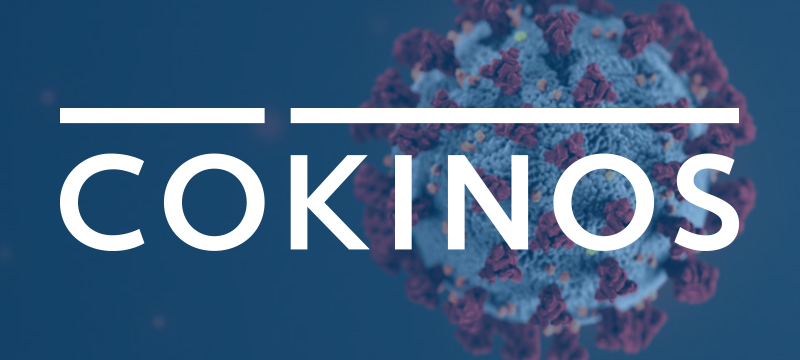Families First Coronavirus Response Act: What does it Mean

Late on March 18, 2020, President Trump signed into law the Families First Coronavirus Response Act. Of note for all employers are three particular aspects of the new law: (1) paid sick leave requirements; (2) expanded FMLA benefits, including paid FMLA; and (3) financial assistance to employers to cover the costs of paid leave. The law becomes effective on April 2, 2020.
Many of the fine points of the policies, forms, and implementation of the law are still being worked out in Washington, D.C., and may be subject to further changes, but below is a brief primer of what private employers need to know and be prepared for:
PAID SICK LEAVE:
- Applies to private employers of fewer than 500 employees
- Provides paid sick leave to workers unable to work or telework for the following covered reasons:
- Employee subject to federal, state, or local quarantine or isolation order related to COVID-19
- Employee advised by a health care provider to self-quarantine because of COVID-19
- Employee experiencing symptoms of COVID-19 and seeking a medical diagnosis
- Employee caring for an individual subject to or advised to quarantine or self-isolate
- Employee caring for child whose school or place of care is closed, or child care provider is unavailable, due to COVID-19 precautions
- Employee experiencing substantially similar conditions as specified by Health & Human Services, in consultation with DOL and the Treasury Department
- Employees are immediately eligible for leave, regardless of tenure
- Excludes health care providers and emergency responders
- Employers must post notice of paid sick leave availability (DOL will soon have poster available on its website)
- DOL authorized to issue exemptions to businesses with fewer than 50 employees if compliance would jeopardize the viability of the business
- Details on how this will work have yet to be finalized or issued in regulations
- It is uncertain how lenient or strict DOL will be in granting exemptions
- Full-time employees entitled to up to 80 hours of paid sick leave
- Part-time employees entitled to paid sick leave up to typical number of hours they are scheduled to work in a two-week period
- Paid leave for employee’s own illness or isolation (covered reasons 1-3 above) to be paid at 100% of daily regular pay rate, up to maximum of $511/day
- Paid leave for caring for others or school closures (covered reasons 4-6 above) to be paid at 2/3 of daily regular pay rate, up to a maximum of $200/day
- Retaliation prohibited
- Failure to pay sick leave treated like failure to pay minimum wages under Fair Labor Standards Act
- Law sunsets on December 31, 2020
EXPANDED FMLA LEAVE:
- Applies to private employers of fewer than 500 employees
- Excludes health care providers and emergency responders
- Provides 12 weeks of job-protected leave to workers unable to work or telework for the following covered reason:
- Employee caring for minor child whose school or place of care is closed, or child care provider is unavailable, due to COVID-19 precautions
- Employee must have been on payroll for 30 calendar days (change from standard FMLA tenure requirement of 1 year & 1,250 hours worked)
- First 2 weeks of leave is unpaid
- Employee may opt to substitute paid vacation, PTO, or sick leave during this time
- Employer cannot require employee to use paid vacation, PTO, or sick leave (change from standard FMLA practice)
- Remaining 10 weeks of leave is paid (change from standard FMLA practice)
- Employees entitled to 2/3 of daily regular pay rate for number of hours employee would otherwise be scheduled to work
- Paid leave capped at maximum of $200/day
- DOL authorized to issue exemptions to businesses with fewer than 50 employees if compliance would jeopardize the viability of the business
- Details on how this will work have yet to be finalized or issued in regulations
- It is uncertain how lenient or strict DOL will be in granting exemptions
- Private employers with fewer than 25 employees may be exempted from returning workers out on COVID-19 FMLA leave to positions that have been eliminated
- Position must have been eliminated due to operational changes occasioned by a public health emergency (e.g., dramatic economic downturn due to COVID-19)
- Certain other as-yet undetermined conditions may apply to be eligible for this exemption
- Employers of fewer than 50 employees for each working day of 20 or more calendar workweeks of the current or preceding year exempt from civil FMLA penalties
- Retaliation prohibited
- Law sunsets on December 31, 2020
FINANCIAL ASSISTANCE TO BUSINESSES:
- Refundable tax credits to employers required to offer paid leave under this new law
- Broader economic relief and stimulus efforts currently under consideration by Congress in additional bills
- More guidance on forms, procedures, potential expediting of economic relief expected to be forthcoming as finalized
In addition to the above, the EEOC and OSHA have been providing regular COVID-19 updates and guidance to employers, so it would be wise to check their websites every few days. If you have any questions regarding compliance with the employment law provisions of the FFCRA, or other employment law concerns, please feel free to contact Shannon Gatlin in our Houston office or Wilson Stoker in our Austin office. Thank you.